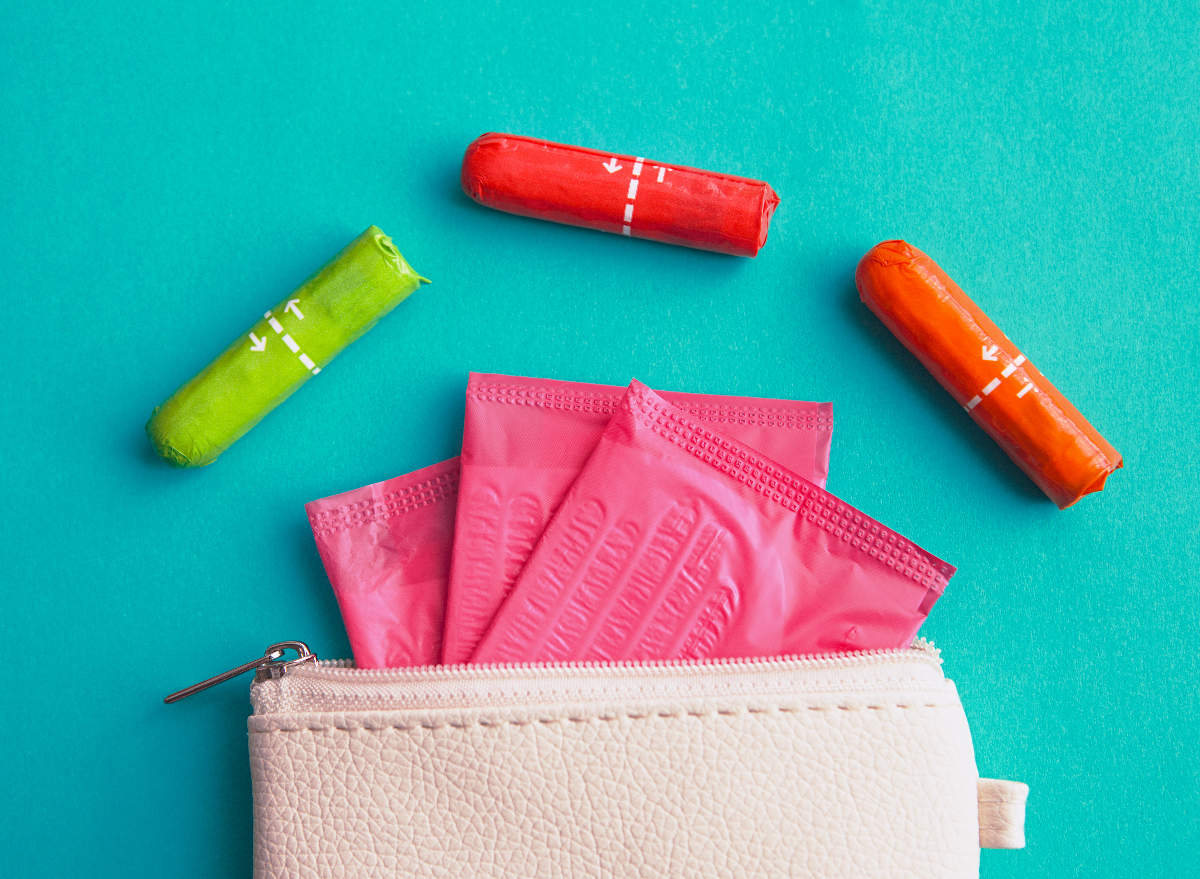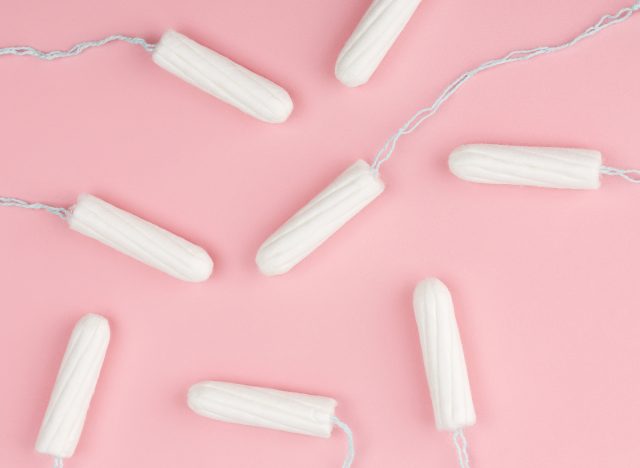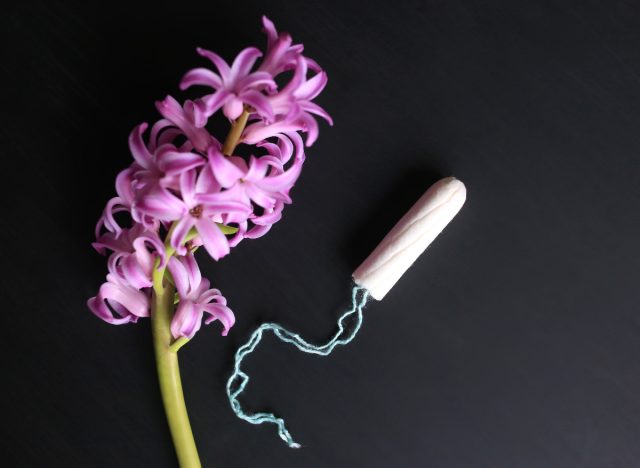Are Organic Tampons The Right Choice For Your Body? We Investigated

Have you given much thought to what’s actually in the tampons you use? Do you know the difference between natural and organic feminine products? And if you’re shopping organic, are organic tampons better for your body? We investigated and learned some interesting information, so you may want to listen up.
When it comes to tampon shopping, the extensive assortment on the market can be pretty daunting. Not only are there light, regular, super, super plus, and ultra absorbency tampons so you’re able to select the best size for your flow, but there’s also a plethora of brands and organic cotton versus non-organic to choose from. Truly, asking a friend or partner to “please pick me up a box of tampons while you’re out” better come with detailed instructions and a huge thank you.
It really comes down to your own personal preference, but perhaps one aspect you should give serious thought to when it comes to the tampons you decide to put into your body is whether they are organic. After all, your vaginal health and general well-being can depend on it.
Related: The 3 Best Workouts To Get Rid Of PMS Symptoms, Trainer Says

First off, know that the Food and Drug Administration (FDA) classifies tampons as a “medical device,” which is why any and every tampon brand is examined for personal safety prior to the product being sold to you, the consumer.
According to Keck Medicine of USC, the FDA evaluates potential risks, including unsafe vaginal bacteria the product can promote, along with the durability, sturdiness, and absorbency of each product. They also scrutinize any potential risk of the material content used to make both the tampon and the applicator. Even so, regular tampons can contain things in their composition that you may not expect in your feminine product. You may be concerned to learn (and rightfully so!) that non-organic tampons can be made with pesticides, chlorine, fragrance, BPA, and dioxin.
“We put between 10,000 and 11,000 tampons into our bodies throughout our lifetime. You’re putting pesticides, chlorine, fragrance, and all sorts of harmful chemicals inside you,” Talia Frenkel, founder of the brand L., which sells award-winning organic personal care products, tells Well+Good. “The purpose of genetically engineered cotton is so that it will be resistant to pesticides and herbicides, which would affect the cotton’s growth. This is problematic because it allows substantially more pesticides and herbicides to be sprayed on the cotton, which increases the risk of its residues being present in the cotton that’s in our tampons.”

We chatted with Lauren Manaker, MS, RDN, LDN, CLEC, CPT, a women’s health expert and registered dietitian nutritionist, about organic tampons. Manaker adds, “Since tampons are typically made from cotton, it makes sense to have concerns of exposure to pesticides, metals, and other components that are found in natural cotton crops when they are used. Since the vaginal mucosa can absorb chemicals like pesticides, the thought is that by choosing organic tampons that are free from potentially harmful factors, women are avoiding the potential of absorbing unwanted items. What people need to remember is that the word ‘organic’ doesn’t always mean pesticide-free. Instead, organic means free from synthetic pesticides—but it may contain organic alternatives, which in some cases isn’t any safer.”
Research also indicates that cotton tampons can cause bacteria that may result in toxic shock syndrome (TSS). The risk is less when using tampons that are composed of either a viscose/cotton or rayon/cotton blend. Keck Medicine of USC explains that although rare, TSS is a disease that shouldn’t be taken lightly. It can occur when Staphylococcus aureus bacteria create a toxin that could result in damage to your organs, in addition to shock and death. It is strongly recommended to not wear the same tampon for more than four to eight hours, or perhaps opt for a more absorbent pad if you need protection for longer.
At the end of the day, it’s always the right and smart call to speak with your physician/GYN about the right path for you and your body. Manaker says, “Ultimately, choosing to use an organic tampon is a personal choice, and women should feel supported no matter what they choose to use for their menstrual hygiene method.” She recommends CVS Live Better Organic Tampons and DeoDoc cotton tampons for those who do choose the organic feminine hygiene route.
Next up, be sure to check out The 6 Best Exercises for Strong and Toned Arms in 2022, Trainer Says.